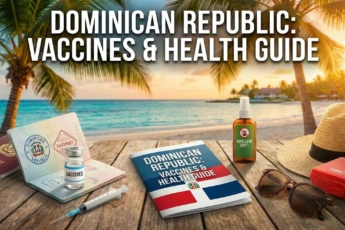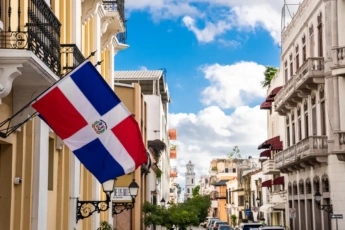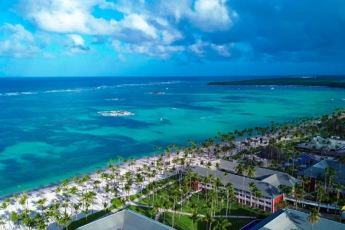Mosquitoes in the Dominican Republic – Best repellents 2026, mosquito season, and how to avoid diseases
Should we beware of mosquitoes in the Dominican Republic, where and when they are more common, how to avoid the effects of mosquito bites, and what is the first aid for bites? We will describe in the article some exciting facts and recommendations that can be useful to everyone traveling to the DR.
Are mosquitoes a big problem in
the Dominican Republic?
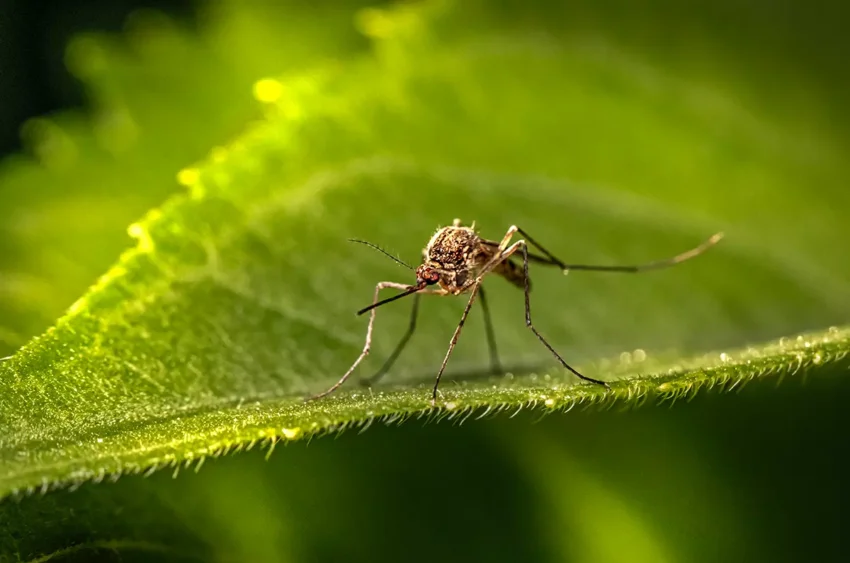
Mosquitoes in the Dominican Republic
Mosquitoes occupy the planet Earth, and they like the warm wet climate of tropical countries. Of course, it doesn’t mean crowds of insects will follow you, but they can be annoying sometimes.
It is important to note that most resorts in the Dominican Republic are regularly fumigated. However, it would be best to do more to ensure 100% protection.
- On excursions, one can expect to encounter very few mosquitoes because they are primarily active during daylight hours when they are sensitive to light and heat.
- When exploring wild and untouched places of the DR in the evening, it is essential to remember that mosquitoes tend to be more active during this time. Thus, it could be more likely to encounter them.
Are there a lot of mosquitoes in the Dominican Republic?
In the Dominican Republic, the number of mosquitoes varies
depending on the following:
- Weather conditions
- Season of the year
- The specifics of a particular region
- Time of day
Mosquitoes are cold-blooded, and their temperature is the same as their surroundings. That is why weather conditions strongly affect their activity. For example, mosquitoes are most active at temperatures above 80°F (26.6°C) and enter hibernation when the temperatures fall below 50°F (10°C).
In the Dominican Republic, temperatures never drop below 60°F (15.5°C), so they are active all year round. Mosquito activity intensifies during the so-called rainy season, when it rains a little more often than usual. The rainy season lasts from May till October. Moist and warm weather during this period is most favorable for breeding mosquitoes.
In resort areas of the Dominican Republic, mosquitoes are less common than in forests and do not disturb tourists persistently with their annoying behavior. However, far from populated areas, not equipped with the benefits of civilization, there are crowds of mosquitoes, and they are very bloodthirsty.
Usually, mosquitoes become more annoying at night when they “wake up” for hunting. The most intense activity of mosquitoes is from 8-10 PM and from 4 to 6 AM. During these hours, the temperature, humidity, and atmospheric pressure are most comfortable for the insects. Female mosquitoes can travel more than 50 km searching for food.
When the sun rises and becomes hot, mosquitoes face death from overheating and drying out. That’s why they seek cool and humid places where they hide until sunset.
How do you prevent mosquito bites
in the Dominican Republic?
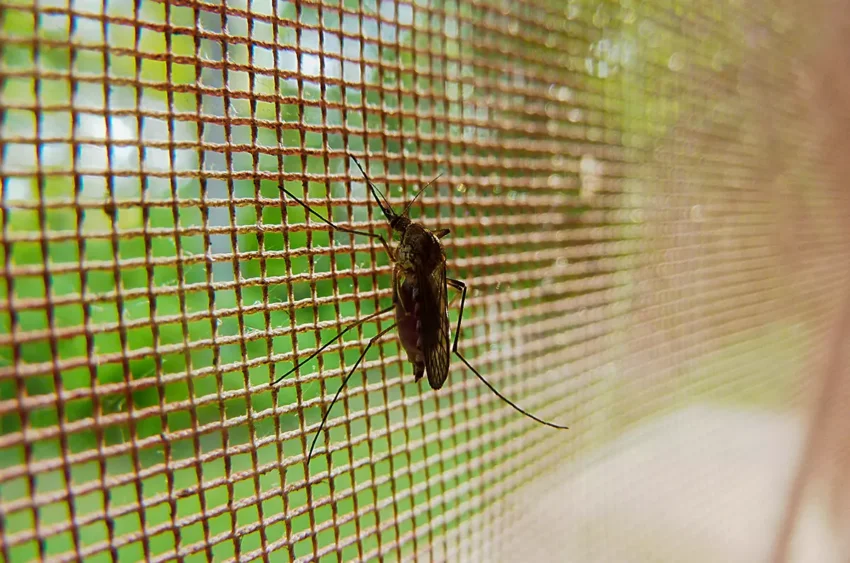
Mosquito net
The main suggestion for vacationers is to put Environmental Protection Agency (EPA) registered insect repellent in their luggage bags. We will describe the list of such repellents below.
When going on a brief excursion, it’s a good idea to have a pocket-sized insect repellent containing around 10% active ingredients like DEET or Picaridin for added protection. If you’re planning to be out in the evenings, it’s advisable to bring a repellent that can provide long-lasting protection. An insect repellent with a concentration of more than 20% DEET or Picaridin can protect you from mosquitoes for over 4 hours.
In general, a lot depends on how sensitive you are. If you are very sensitive, having good mosquito repellents with you is essential, but if not, you may not even notice the existence of mosquitoes.
Here are some more bits of advice which can help you to avoid mosquitoes:
- Loose-fitting clothes that cover your arms and legs can protect you from annoying mosquitoes.
- Sleep under a mosquito net if you take a nap outside.
- When planning to stay at a hotel, it’s important to gather information about the hotel’s mosquito protection measures. This could include asking about the frequency and methods of disinfection, the presence of mosquito nets on windows and doors, and the hotel’s proximity to the coastline.
- It’s a good idea to find the addresses and telephone numbers of the nearest first aid stations and store them in your phone book. This way, you’ll be prepared in an emergency and can quickly contact the nearest first aid station.
- If you have an insect-repellent allergy, inform your host of your condition. This will allow them to take necessary precautions to protect you from mosquitoes without putting you at risk.
- Renting a villa or an apartment can sometimes be a more suitable option, as it allows you to ensure proper mosquito protection measures, such as air conditioners and screens on doors and windows. You can also request for these to be installed; this simple kind of protection can solve the problems with mosquitoes in your sleeping area.
Our villa rentals offers
-

Two Luxury Private Lakefront Villas in Punta Cana (Cocotal Golf & Country Club) – Pools, Gym, Cinema Room, & Full Staff
from $5117 / night View Details -

Luxury All Inclusive Villa Waterfall in Punta Cana (Bávaro, Cocotal) – Private Pool, BBQ, Maid, Chef & Meal Plans
from $1320 / night View Details -
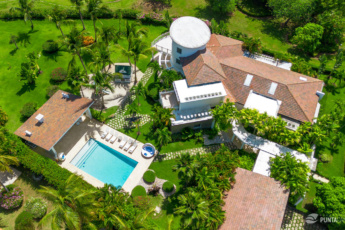
Villa Désirée – Luxury Golf Villa in Punta Cana’s Prestigious Cocotal Golf & Country Club – Huge Private Pool & BBQ Area, Kids’ Playground
from $1099 / night View Details -
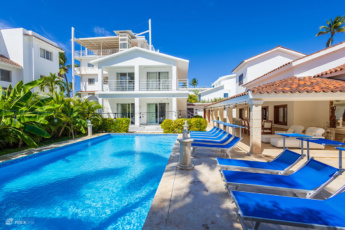
Villa May – New Modern Beachfront 7BR Villa with Pool & Maid in Bavaro, Los Corales
from $1200 / night View Details -

Spacious 4-BR Punta Cana Golf Villa in Cocotal – Private Pool, Jacuzzi & Basketball Hoop for Family Fun
from $649 / night View Details -
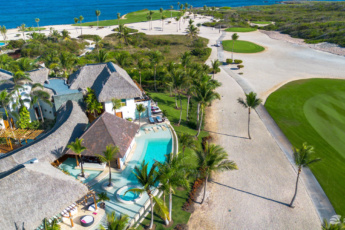
Villa Agapi (Caleton Estates 57) – The Most Beautiful Ocean View Villa in Cap Cana
from $2850 / night View Details
The best mosquito repellents in 2026
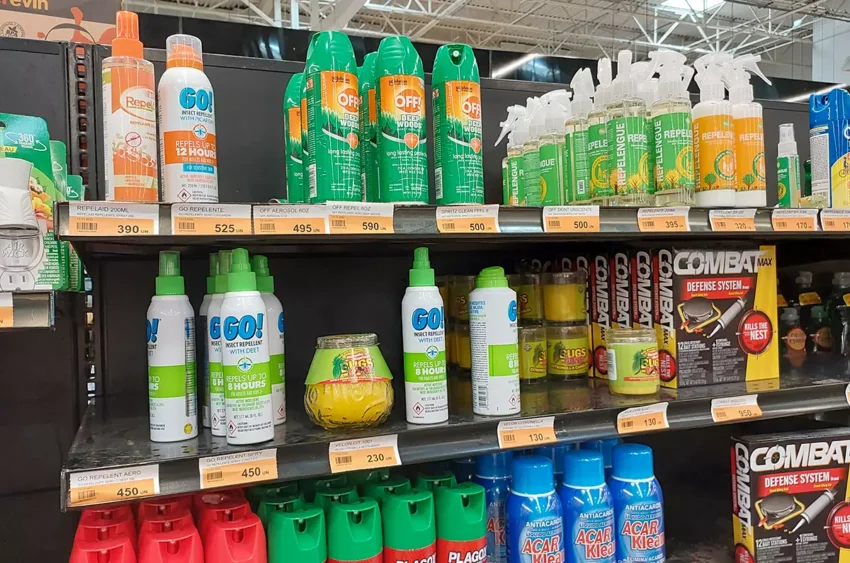
Repellents at a local store Plaza San Juan in Punta Cana (prices in Dominican pesos)
How to get rid of mosquitoes in the Dominican Republic? You can protect yourself from insects before they become an issue by understanding which repellents are most effective in keeping mosquitoes at bay.
All repellents act on the same principle – they block the insect’s senses of smell and taste, so mosquitoes cannot find and bite you. There are both natural and synthetic repellents.
The table below shows the most effective and popular synthetic repellents. All of them show themselves safe and effective. All products listed in the table are for informational purposes only. Repellents from the table are EPA (United States Environmental Protection Agency) registered insect repellents.
| Product name | Action time | Active ingredient | Brand name | Price |
|---|---|---|---|---|
| Bug Block Sunscreen and Insect Repellent (SPF) | 1 hour | Citronella | W.F. Young Inc | $6 – $7 |
| Avon SKIN-SO-SOFT Bug Guard PLUS IR3535® Insect Repellent – SPF 30 Gentle Breeze | 2 hours | IR3535 | Avon Products, Inc. | $15 – $17 |
| Buzz Away Insect Repellent | 2-3 hours | Citronella Oil | Quantum Inc. | $9 – $10 |
| Cutter All Family Mosquito Wipes | 2 hours | DEET | Spectrum, A Div Of United Industries Corp. | $5 – $7 |
| OFF! Daily Defense Insect Repellent II | 3-4 hours | Picaridin | S.C. Johnson & Son, Inc. | $11 – $17 |
| Ultra 30 Insect Repellent Lotion | 4 hours | DEET | Sawyer Products | $10 – $12 |
| Champion Sprayon Insect Repellent | 5 hours | DEET | Chase Products Co. | $18 – $20 |
| OFF! FamilyCare Insect Repellent II | 3-4 hours | Picaridin | S.C. Johnson & Son, Inc. | $5 – $7 |
| Cutter Lemon Eucalyptus Insect Repellent | 6 hours |
Oil of Lemon Eucalyptus
|
Spectrum, A Div Of United Industries Corp. | $5 – $12 |
| Repel Plant-Based Lemon Eucalyptus Insect Repellent | 6 hours | Oil of Lemon Eucalyptus | United Industries Corp. | $12 – $13 |
| Natrapel 8 Hour Insect Repellent Continuous Spray | 8 hours | Picaridin | Tender Corp. | $7 – $9 |
| OFF! Deep Woods Insect Repellent VII | 8 hours | DEET | S.C. Johnson & Son, Inc. | $7 – $10 |
| Avon Skin-So-Soft Bug Guard Plus IR3535 Expedition SPF 30 Pump Spray | 8 hours | IR3535 | Avon Products, Inc. | $15 – $17 |
| Coleman Skin Smart Insect Repellent | 8 hours | IR3535 | Wisconsin Pharmacal Company LLC | $4 – $6 |
| Maxi DEET Insect Repellent | 10 hours | DEET | Sawyer Products | $8 – $11 |
| 3M Ultrathon Insect Repellent Lotion | 12 hours | DEET | 3M Company | $11 – $13 |
| Ranger Ready Repellents Tick + Insect Spray | 12 hours | Picaridin | The PIC20 Group, LLC | $10 – $20 |
| Sawyer Picaridin Insect Repellent Lotion | 14 hours | Picaridin | Sawyer Products | $16 – $18 |
Please remember that it is better to avoid applying the oil of lemon eucalyptus products on children under the age of three. The main reason is that the oil of lemon eucalyptus can cause significant eye damage.
The most effective EPA-Registered ingredients
used in mosquito repellents
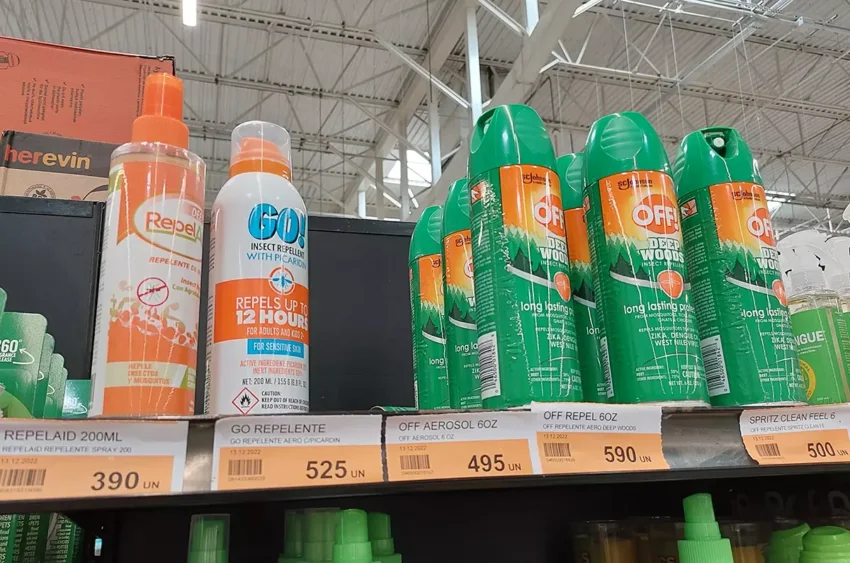
Mosquito repellents at a local store in Punta Cana
1. Picaridin
Picaridin, also known as icaridin, was created in the 1980s. It is a synthetic version of a natural repellent found in pepper plants – piperine (it’s what gives peppers their spicy scent).
Picaridin does not irritate eyes, dissolve plastics, and has no pungent odor. It is effective against mosquitoes, flies, chiggers, fleas, and ticks. It does not kill insects – it simply blocks their senses so they cannot detect humans. It is recommended to use 5-10% Picaridin for 2-3 hours of protection and 20% for extended protection.
2. DEET
DEET is the most popular and very effective mosquito repellent. It is designed to apply to exposed human skin or onto clothing. It may damage some types of plastic, rubber, and vinyl. It has a pungent odor and can cause irritation if it comes into contact with the eyes.
DEET has been used for over 50 years (since 1957) and is considered safe by many health authorities and organizations. However, it may be toxic to some people, especially children. You may use 7-10 % DEET for short protection periods and 20-30% DEET for extended periods.
3. IR3535
IR3535 is not harmful if ingested, inhaled, or applied to the skin. Eye irritation may occur if the chemical comes into contact with the eyes. This ingredient can dissolve or damage some kinds of plastics. It works well against Culex mosquitoes, deer ticks, body lice, and biting flies. IR3535 is a colorless, almost odorless oil for topical application. Products containing this active ingredient have been used in Europe for 20 years without significant side effects.
Always use the repellents only as described on the label. You can get more detailed, science-based information about all pesticides here http://npic.orst.edu/
Natural mosquito repellents
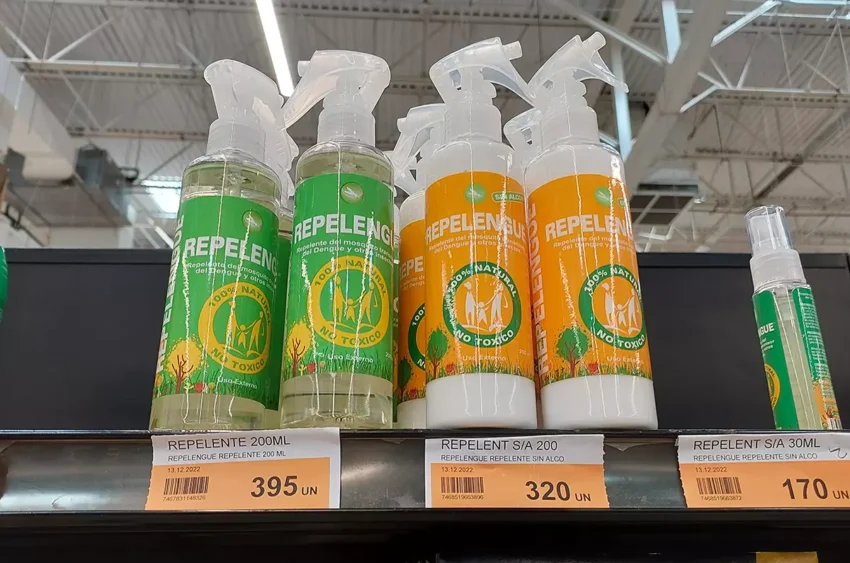
Natural mosquito repellents at a local Dominican store
Natural mosquito repellents are less effective than synthetic ones and usually require more frequent applications. The significant advantage is that they are more environmentally friendly. Some plant-derived essential oils can be an excellent alternative to synthetic repellents.
Here is the list of the most effective natural mosquitoe repellents:
- Lemon eucalyptus oil. It provides protection similar to repellents with 15%-20% concentrations of DEET. Lemon eucalyptus oil is derived from a lemon-scented blue gum eucalypti plant native to northern Australia. Mix 1 part oil of lemon eucalyptus with ten parts witch hazel in the bottle. Shake to mix and spray to apply. The effect from 32% lemon eucalyptus oil lasts for about three hours.
- Citronella oil. Many repellents are created on this basis. Mix one piece of citronella oil with one piece of witch hazel and store it in a spray bottle.
- Small amount of Camphor, such as a few grams, steamed over a burner can help get rid of mosquitoes. This method can be helpful if you have a small area to protect. It’s important to note that camphor fumes can be harmful if inhaled in large quantities, so it’s best to use this method in well-ventilated areas and avoid breathing in the fumes directly.
Please note that some people may have skin reactions to a certain oil, so it is better to do a patch test before applying it. Before using essential oil as a mosquito repellent, remember never to apply it directly to the skin. First, mix it with a carrier oil, such as jojoba, avocado, arang, or almond oil. Usually, 3-5 drops of essential oil are diluted in 1 ounce (30 ml) of carrier oil.
What kind of mosquitoes are there
in the Dominican Republic?
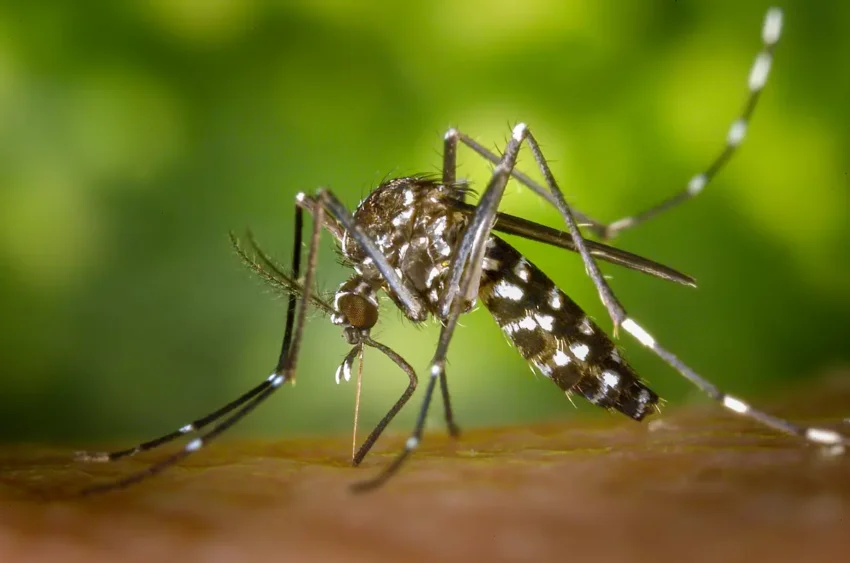
Mosquito Aedes Aegypti
There are about 3600 species of mosquitoes in the world. There are 59 species of mosquitoes in the Dominican Republic. Only three species should be avoided – Aedes aegypti, some representatives of the Culex family, and Anopheles albimanus. All of them are effective transmitters of diseases, but the chance of contacting any dangerous representatives from the listed families in the Dominican Republic is meager.
1. Culex mosquito
When we say “mosquito”, we think of this particular species. The Culex family is worldwide except for the extreme northern parts of our planet. It is a slightly dull grey or brown in the color mosquito. Culex bites during the night hours and never during the day. It tends to feed on the blood of birds and animals but people too.
2. Aedes aegypti mosquito
Aedes aegypti – the yellow fever mosquito. It can transmit the pathogens that cause dengue, chikungunya, Zika fever, Mayaro, and yellow fever. Aedes is smaller and brighter than usual house mosquitoes. It is easy to recognize Aedes by white bands on the legs and white spots on its abdomen and thorax. This species originally came from Africa but spread throughout Earth’s tropical, subtropical, and temperate regions. They bite during the day and rarely at night.
3. Anopheles albimanus mosquito
Anopheles albimanus is widespread throughout Latin America and the Caribbean. Their habitat is open, sunlit, and freshwater so they can be found around the planted rice fields. The resort pool areas are also attractive to Anopheles, but they are regularly fumigated, so there is no chance for mosquitoes to survive. Anopheles bites in the evening and feeds on animals at night. It is considered to be a dominant malaria vector species.
What should I do if I get bitten
by a mosquito in the DR?
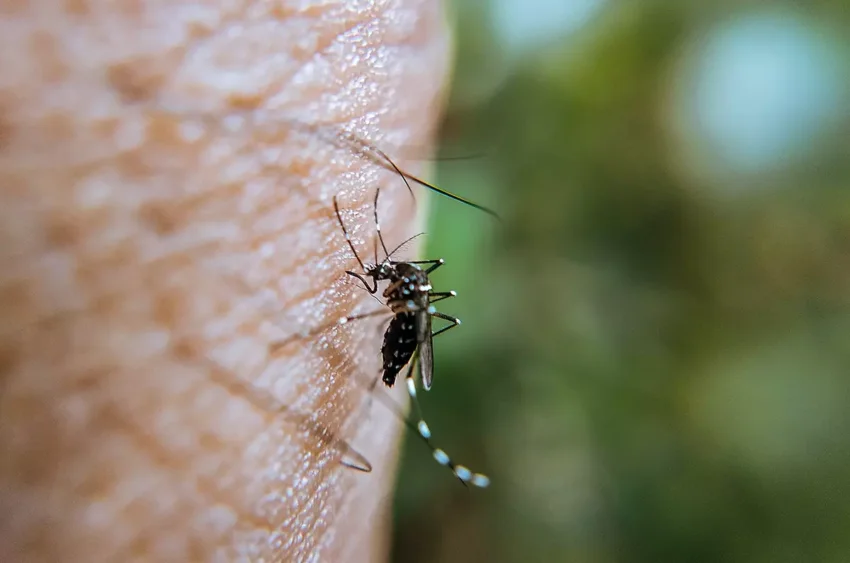
What to do if a mosquito bites?
Generally, mosquito bites have no apparent adverse effect on human health, and there is no reason to worry. A mosquito bite usually accompanies itching lasting from one to three days.
Mosquito bites itch because the body releases the histamine in response to the stimulus. Mosquito saliva contains proteins that prevent blood from clotting. They are alien to the human body, so they cause an immune system reaction. You may notice that the bump swells and does not go away. It is not dangerous for your health but draws excessive attention.
For quick relief from the itching caused by mosquito bites, there are several simple things you can do at home:
- Apply a cold compress or ice pack to the bite
- Avoid scratching the bite as it can increase the risk of infection
- Apply a cream or lotion containing an antihistamine to the skin (please consult your doctor before use)
- Aloe vera gel or calamine lotion may also provide relief
- Treat the bite site with alcohol
- Treat the bite site with a solution of baking soda (1/2 tsp baking soda mixed with a small amount of water to form a paste). It is important to note that some people may be allergic to baking soda
- Apply the lemon or pour lemon juice onto the affected area of the mosquito bite. Also, it’s important to remember that lemon juice can cause skin irritation or allergic reaction in some people
Remember that you should not scratch a mosquito bite. Scratching bites cause skin trauma. There is a risk of bringing pathogens from under the fingernails to the injury site. Scratching causes inflammation of the bite site: it becomes red, swollen, and rotting. The treatment will be required, and the wound will take longer to heal than if it was not scratched. If your health suddenly deteriorates after a mosquito bite, do not hesitate to go to the hospital for emergency treatment.
Is there a mosquito season in
the Dominican Republic?
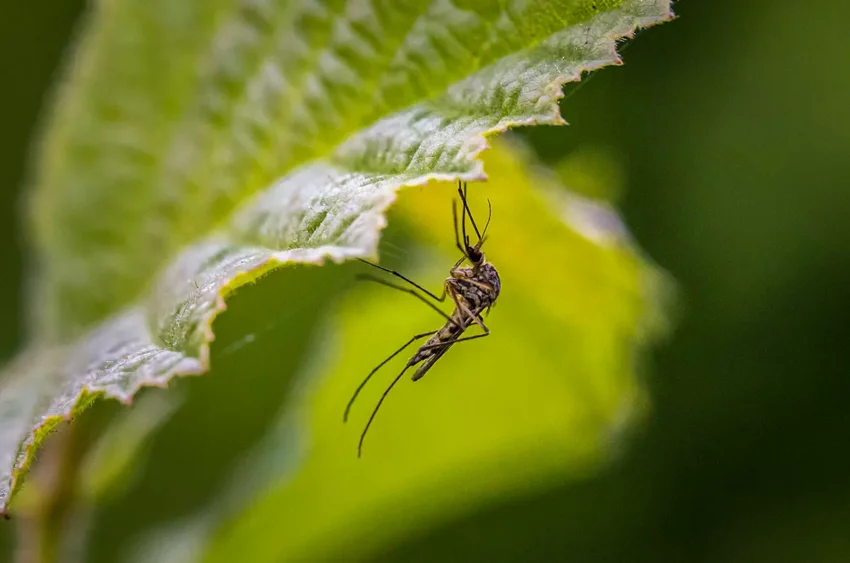
Mosquito season in the DR
The mosquito season in the Dominican Republic coincides with the rainy season. It lasts from May to November. This period is a calm rainy season. It rains a bit more often than usual and mostly at night.
By using insect repellent, covering exposed skin with long-sleeved shirts and long pants after sunset, sleeping under a mosquito net, choosing air-conditioned rooms, and taking other precautions, you can ensure that your vacation is enjoyable and mosquito-free.
During the rainy season in the Dominican Republic, there are often 30-40% discounts on most services. The weather changes during this period generally do not disrupt travel plans. Additionally, it is less crowded and less hot during this period, which can significantly benefit many tourists.
Do mosquitoes carry diseases in
the Dominican Republic?
Yes, some mosquitoes carry diseases, not only in the Dominican Republic. Mosquitoes transmit viruses, microbes, and parasites, making them one of the most dangerous creatures on Earth.
Nowadays, the risk of being bitten by infected mosquitoes in resort areas of the Dominican Republic is shallow but exists. Malaria, dengue, zika, and chikungunya are not entirely spread but could pose a potential danger for travelers.
Thus, it would be best to take precautions to keep mosquitoes away to prevent bites. And please remember that you must go to a medical facility when you feel bad after a mosquito bite.
1. Zika virus
Zika virus is transmitted to people through infected mosquito bites and sex. The most significant danger the virus poses to pregnant women because may result in birth defects.
Zika can cause headaches, fever, red eyes, and severe joint and muscle pain. The symptoms last about one week. Many infected people have none of the above symptoms at all. Mosquitoes that spread Zika primarily are infected Aedes species mosquito. We described how it looks above.
2. Chikungunya
Chikungunya is a mosquito-borne illness that is present in the Dominican Republic. Symptoms are similar to dengue and flu-like diseases and include fever, headache, severe joint pain of the hands and feet, joint swelling, and rash.
There is no vaccine or approved specific antiviral therapy to treat chikungunya infection. Thus, the best protection is to prevent mosquito bites. Fatal cases from chikungunya are sporadic.
3. Dengue fever
Dengue is a mosquito-borne viral disease. Dengue virus is spread by infected Aedes mosquito. Most infected people recover in 5-10 days and have no symptoms or mild symptoms that can be confused with flu.
These are symptoms that may indicate a dengue medical emergency:
- Severe stomach pain or at least 3 episodes of vomiting within 24 hours
- Your nose or gums are bleeding
- Vomiting blood, blood in the stool
- Your skin became pale, cold, or clammy
- Difficult to breathe
4. Malaria
Malaria (from Italian mala aria – “bad air”) is a disease caused by parasites that are transmitted by mosquitoes. In the Dominican Republic, malaria risk is low in all areas, and antimalarials are not advised. The last malaria outbreak in the Dominican Republic was in 2018, in the capital Santo Domingo.
The mosquito that transmits malaria typically bites from sunset to sunrise, so it’s important to sleep under a mosquito net to protect you from these bites. Symptoms of malaria usually appear 10-15 days after a bite and resemble the flu, such as a high fever (39-41°C), chills, low blood pressure, and rapid breathing. Nausea and vomiting may also occur.
If you suspect you have malaria, it’s essential to seek medical attention immediately, as it can be a severe and potentially fatal disease if left untreated. Malaria is preventable and curable. In 2021 World Health Organization (WHO) approved the first malaria vaccine.
Tourists vacationing in the cities of the Dominican Republic usually do not need medicines and treatment for malaria. However, it would be best if you took precautions against mosquito bites.
The Conclusion
The Dominican Republic has a high population of mosquitoes. To avoid problems with pesky insects, it’s advisable to arm yourself with a good repellent. These are simple to use and can effectively keep mosquitoes at bay.
Updated on: . Author:

